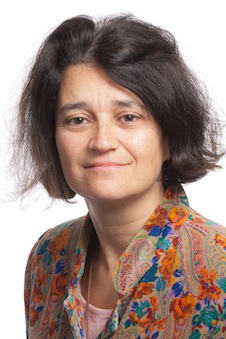
Office Arts 3S6
Tel +64 3 479 8694
Email cecilia.novero@otago.ac.nz
Cecilia Novero has a PhD in German Studies from the University of Chicago (USA). After positions held at the University of Michigan, Vassar College and Penn State University (UP), she joined the University of Otago (NZ) in 2008.
Her book entitled Antidiets of the Avant-Garde: From Futurist Cooking to Eat Art (UMP 2010) examines the temporal relations between the historical Avant-garde and the Neo-Avant-Garde, through the lens of material consumption. She has published essays on the German cultural history of food, Italian Futurism, Dada, Walter Benjamin, Viennese Actionism, artists Daniel Spoerri and Antoni Miralda, Eat Art, travel writing, and German and European film and photography. Most recently Cecilia has co-edited two issues of Antennae (www.antennae.org.uk), devoted to animals and photography, as well as the 28th volume of Otago German Studies, on material ecocriticism. An essay on artist Daniel Spoerri, Natural History Museums and archives appears in Seminar 53:3 (2017), and an article on Futurist cooking is forthcoming in G. Berghaus's Handbook of International Futurism (De Gruyter, 2018).
Research / Supervision Interests
Cecilia's research and teaching interests are the interdisciplinary fields of Food Studies, Animal Studies and the Environmental Humanities. She pursues these interests by focusing on Visual Culture, mostly 20th and 21st-century European cinema and the art and texts produced by the historical Avant-garde and the Neo-Avant-garde movements. In her scholarship Cecilia has also explored the material role that nature and non-human animals play in literary and philosophical texts, in particular post-humanism. She examines all texts, whether art, film or literature, comparatively and cross-culturally. Cecilia has an abiding interest in the literature and art from the former German Democratic Republic, travel literature, adaptation theory, gender and queer theory, as well as critical theory – especially but not limited to the works of Walter Benjamin, Herbert Marcuse and Theodor W. Adorno. She is an advocate of the public humanities, both as theoretical approach and as practice.
Cecilia has co-supervised several theses and dissertations, ranging from the work of individual authors or artists (Christa Wolf, Jean Cocteau, Franz Marc) to periods, genres, and/or theoretical issues (Weimar Republic fairy tales; GDR novels and the mother figure; masculinity and German contemporary novels; space and gender in film; graffiti art in post-1989 Berlin, among others). Cecilia welcomes postgraduate students interested in any of the above fields.
Cecilia's profile can also be found here